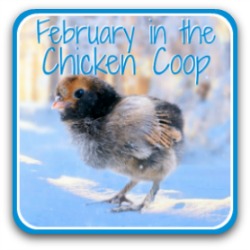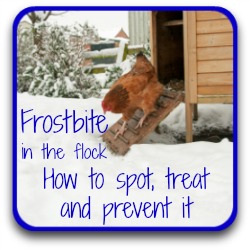- Home
- Predators
Chicken predators: how to protect your flock.
It's a sad fact: chickens are bottom of the pecking order when it comes to the food chain. And it's up to us to protect them.
If you have chickens, you've probably had experience of losing some to predators - particularly if you free range your flock. It's a heart-breaking experience.
But there are positive things we can do to help avoid the pain.
From identifying which predators may be living in and around our household, to knowing how to spot the signs of different animals, to being ready for them by making your coop secure...
It's totally possible to minimise the dangers.
I first discovered that when I lost my entire flock to a local fox family, and my next one to a pine marten (a member of the weasel family).
Desperately sad and feeling massively guilt-ridden, I decided to learn all I could about chicken predators, and do what I could to make sure that my chickens can live in peace with all the predators who would like to view my coop as their personal fast-food outlet.
My aim in these articles is to share everything I've learned with you, so that you don't have to go through what I did.
Don't be the next person to lose your flock. Prepare before it happens.
Identifying predators: how to become your own detective!
If you have chickens you're likely to have predators. But which? How to identify them? And, once you know what they are, how to protect your flock from them?
Gail Damerow's book helps us all become our own predator detective. She expertly gives us clues to piece together so that we know exactly which predators we're dealing with, and goes on to discuss aspects of their behaviour which allow us better to provide safe coops and runs.
Read my review of this fascinating book and decide whether you can afford to live without it!
The deadliest chicken predator: the fox
If you have backyard chickens, it's almost inevitable you'll find foxes not far away.
The most easily recognised of all predators, their meal of choice is chicken, especially at that time of year when they have cubs to feed.
Here you'll learn how to spot their dens, find specific signs that they're around and eight simple ways of keeping them away from your coop.
It's possible to live in harmony with wild animals, even if you keep chickens. Find out how in this article.
Raccoons
We're lucky enough not to have raccoons in Italy, but in north America they're one of the most common chicken predators.
This article describes the raccoon's habits which can inform the way they can be kept away from poultry. It includes how to tell if you have raccoons nearby, how they sound and what their tracks look like, how they hunt and how to stop them.
A few simple security additions to your coop is all it takes.
The pine marten and other members of the weasel family
Pine martens are one of the most ruthless and callous chicken predators. Apparently killing for fun, their cute looks hide the viciousness of their attack.
A native of Europe and living (as you might imagine) largely in pine woods, don't think you can avoid them if you live elsewhere.
They're a member of the same family as weasels, stoat, mink and badgers, so their presence is global and their killing pattern identical.
Ignore them at your peril. Prepare your coop now.
The possum
Cute or deadly chicken foe? The possum (or opossum) has mixed reviews in terms of whether or not it is a predator of chickens.
This article uses reliable sources to evidence which possum may be a problem, where it's found and how to know whether or not you have possums in your area.
And it offers four easy steps to keeping chickens safe if they are a problem for you.
Birds of Prey
They are some of the most beautiful birds on the planet - and the deadliest as far as chickens are concerned.
This article covers four groups of birds of prey, ranging from stunning eagles through hawks and owls to the noisy raven.
Using images, video and audio clips as well as descriptions, you won't have any problem identifying which of the chickens' airborne enemies you may have waiting for their next meal.
How to protect chickens from birds of prey.
If birds of prey are an issue for you, this article will help.
It offers ten different ways you can protect your chickens from raptors. Some you'll be able to put in practice immediately, others may take more planning.
Review them all, and choose those which are best suited to your situation, your budget and the type of raptor posing the threat.
- Home
- Predators













